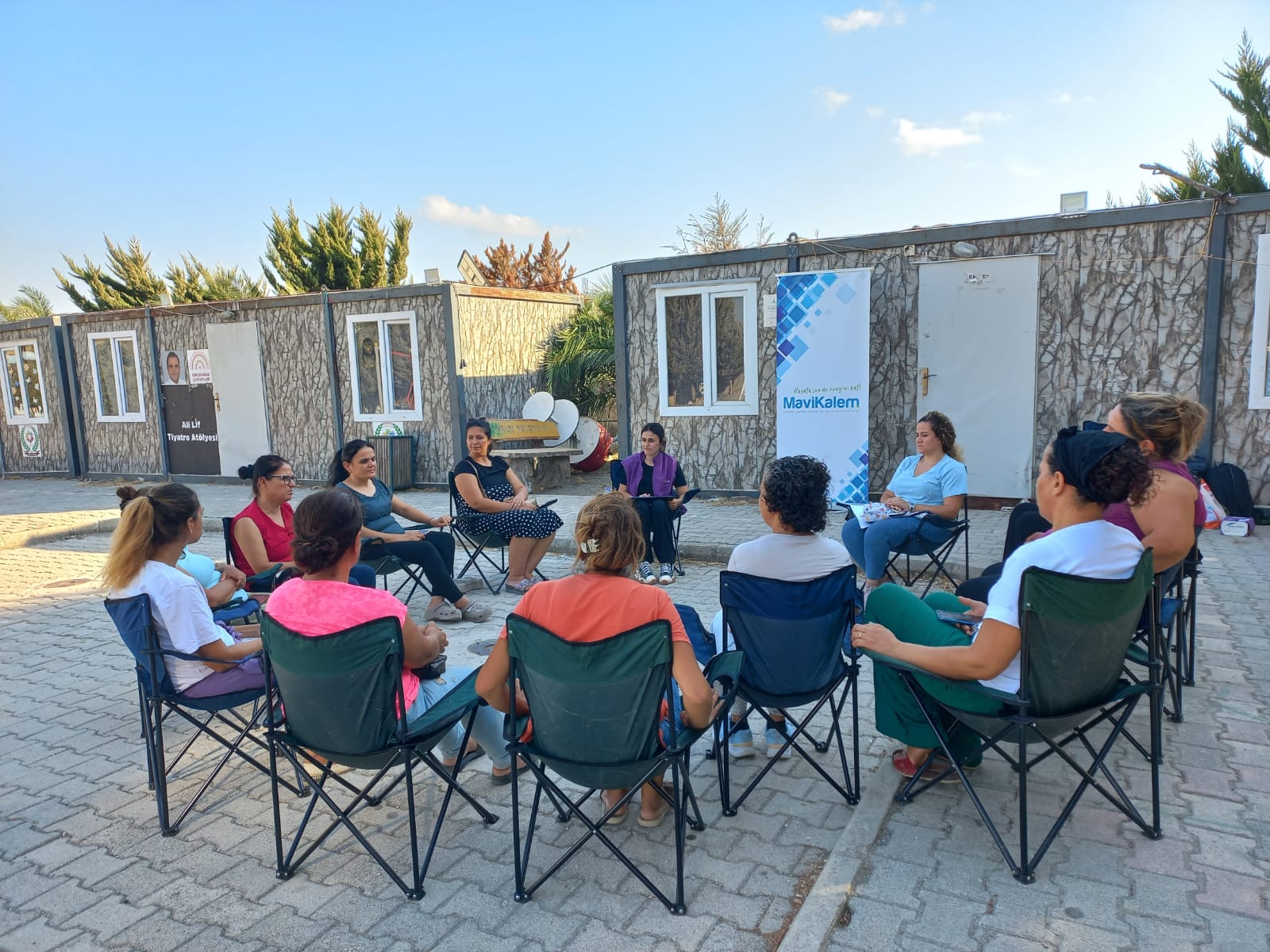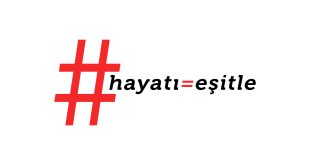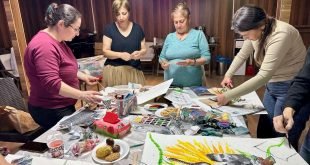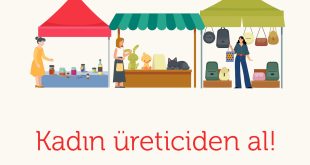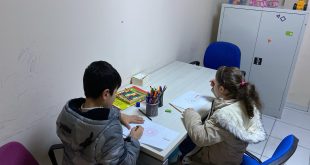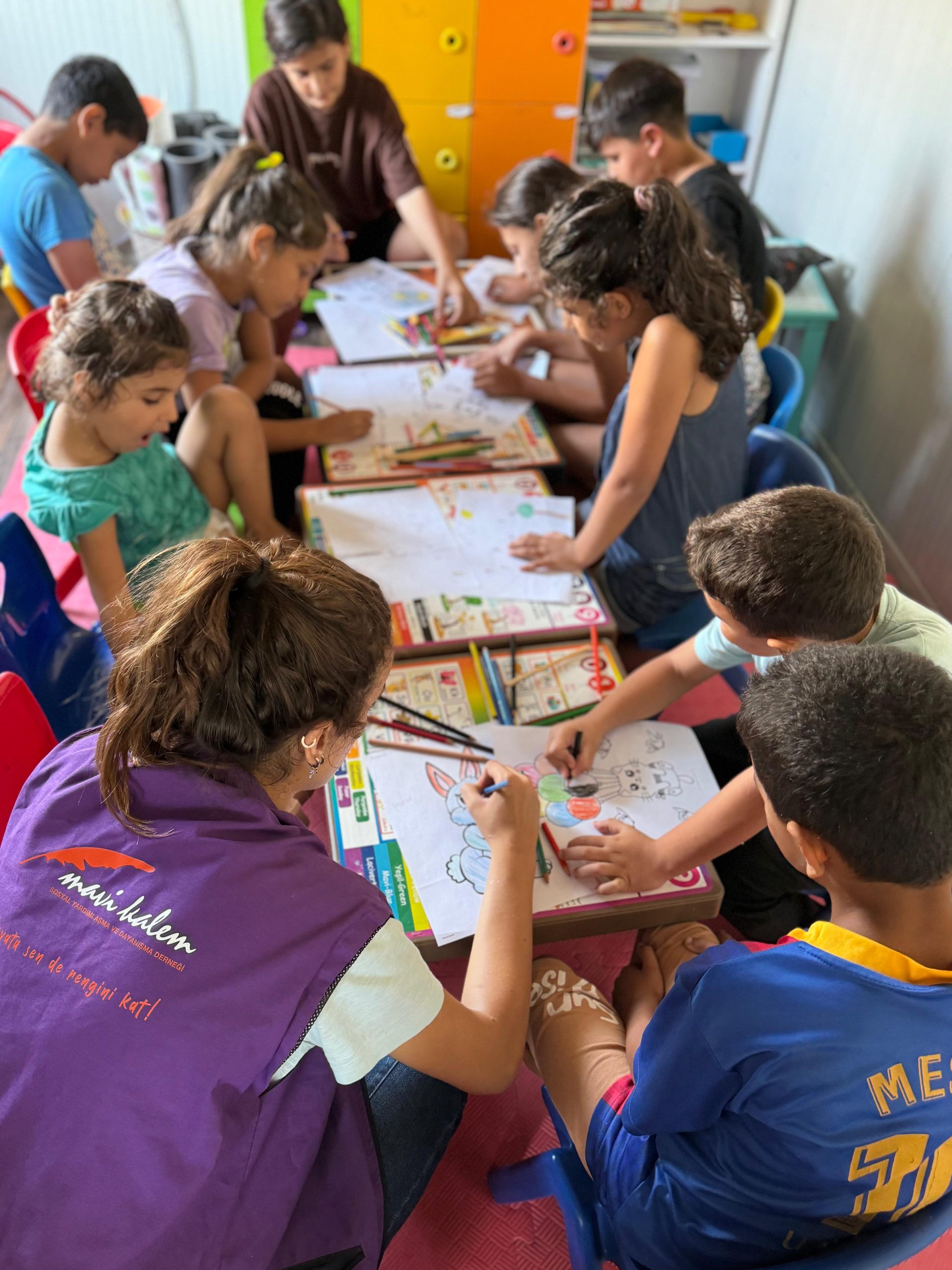
On the second year of the Kahramanmaraş earthquake, Mavi Kalem organized group events and facilitated individual interviews to support the well-being of women and children in Hatay. This work was part of the project “Supporting Basic Needs and Strengthening Well-being of Earthquake-Affected Households in Hatay”, funded by Stichting Vluchteling and implemented between 15 April 2024 and 30 November 2024. Our project included both Hatay locals and refugees.
The psychological support provided by Mavi Kalem in both years was different depending on the needs. A clinical psychologist,
a child development specialist and two social workers took part in these studies conducted for women and children. The aim of Mavi Kalem PSS studies is to provide the psychological support that women and children need, to make them feel that they are not alone, to create an environment where they can express themselves, to bring them together with other women/children and to provide them with special time for themselves. These studies aim to activate the healing potential in women and to make them proud of what they have done and what they can do.
In the first year of the earthquake, women, men, children, the elderly, the disabled, in short, everyone was struggling to survive. The burden on women was massive during the period of re-establishing living conditions and survival. On the one hand, it was the responsibility of women to keep their families together and healthy, on the other hand to maintain a home life in extraordinary conditions, to queue up and buy basic household needs such as water, food, clothing, and shelter, to take their daughters and sons to central toilets and baths, and many more. They were also supporting their children, spouses, elders, and other family members amidst the fears they experienced during the ongoing aftershocks. In the first year, the Mavi Kalem psychosocial support team worked with women to express the fear they experienced due to the earthquake and to share this feeling with other women who experienced it, to understand that they were not alone, to understand the difficulties of establishing a new life, to communicate their anxieties, to state the difficulties of living in a crowded environment, their children’s fears, and their mutual dependency with their children.
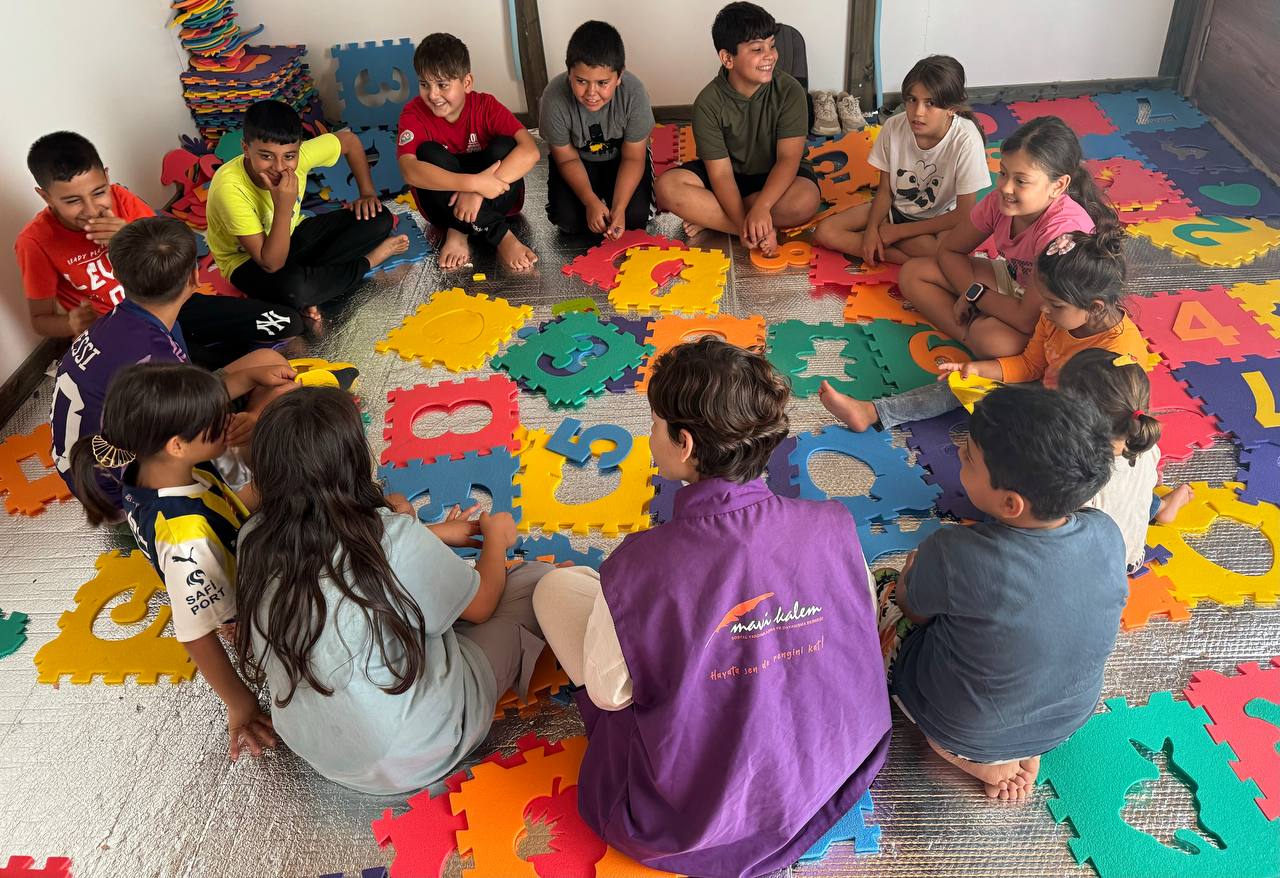
The need for psychosocial support continued in the second year with new themes that overlapped with the first year and it still continues. In the second year, people in Hatay started living in either container cities or in their slightly damaged or undamaged houses in the city. Some started living in earthquake housing that was built this year. In the group studies we conducted with women, many issues were studied such as the relationships between spouses, changing relationships in large families and the stress they brought, living in containers where there was little privacy, their concerns about when they would be able to return to their own homes and lives, how long they would live like this, their relationships with their children, the boundaries they set for their children and young people, making new friends in an unfamiliar environment where they did not have their old neighbors, maintaining the order of the house, and improving the psychology of their spouses and children. Women realized that they were not alone in their problems during group meetings. They shared their problems and benefited from each other’s solutions. It was seen from the women’s feedback that they understood how great what they had done by resisting and relying on the conditions they lived in. They explained how good it was for them to take time for themselves and value themselves.
In addition to group work, some women also received individual counseling. Here, they discussed their problems and worked with a clinical psychologist on issues related to themselves, their spouses, and their children. These studies focused on women understanding themselves, expressing their feelings, explaining themselves to others and being heard. In the group work and individual interviews, we conducted with women this year, psychological injuries diagnosed as post-traumatic syndrome were frequently encountered. It was determined that the earthquake caused serious physical and mental injuries to women. In such cases, which exceeded the limits of our study, women were directed to psychiatrists and clinical psychologists where they could receive long-term support.
The earthquake had a very heavy impact on the children. In the first year, fears, especially the fear of losing, caused the children not to leave their families and to want to sleep together. For this reason, they did not even want to go to school. In the second year, the fear of earthquake continued, and there were more complaints of anger and irritability regarding the children. This year, their unwillingness to study was on the agenda. Living in container conditions also limited them, they could not study together with everyone in a small area. There were very few or no areas where they could play and make friends. This caused them to be tense and reactive. Since children had limited places to play, release their energy and socialize, this year, children were entertained by playing active, musical games and singing songs. Mothers and children said that they were very happy with these activities and gave feedback that they wanted them to be more frequent.
The need for psychological support for women and children in Hatay continues.
 Mavi Kalem Sosyal Yardımlaşma ve Dayanışma Derneği Hayata Rengini Kat!
Mavi Kalem Sosyal Yardımlaşma ve Dayanışma Derneği Hayata Rengini Kat!


